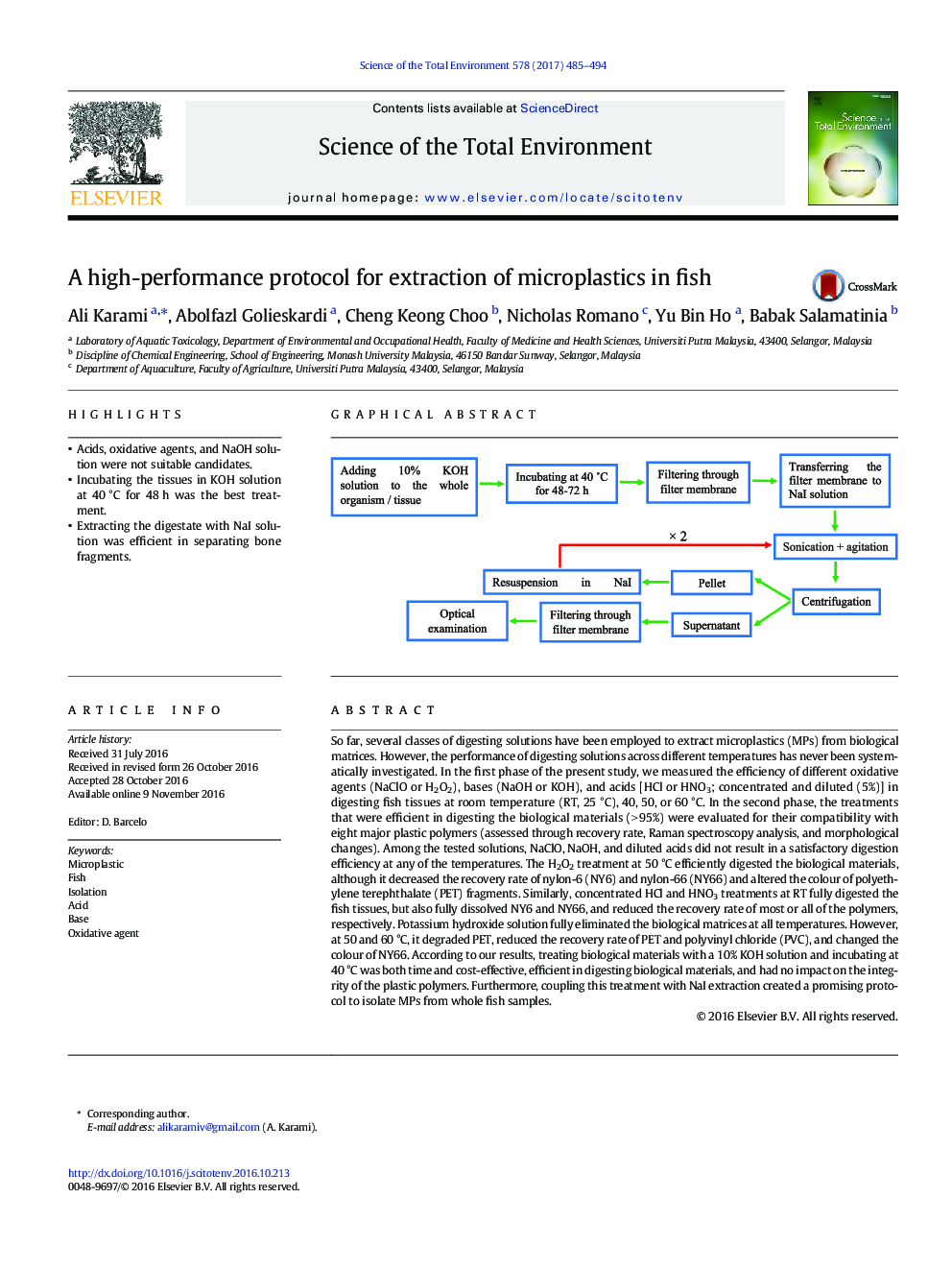| کد مقاله | کد نشریه | سال انتشار | مقاله انگلیسی | نسخه تمام متن |
|---|---|---|---|---|
| 5751505 | 1619713 | 2017 | 10 صفحه PDF | دانلود رایگان |
- Acids, oxidative agents, and NaOH solution were not suitable candidates.
- Incubating the tissues in KOH solution at 40 °C for 48 h was the best treatment.
- Extracting the digestate with NaI solution was efficient in separating bone fragments.
So far, several classes of digesting solutions have been employed to extract microplastics (MPs) from biological matrices. However, the performance of digesting solutions across different temperatures has never been systematically investigated. In the first phase of the present study, we measured the efficiency of different oxidative agents (NaClO or H2O2), bases (NaOH or KOH), and acids [HCl or HNO3; concentrated and diluted (5%)] in digesting fish tissues at room temperature (RT, 25 °C), 40, 50, or 60 °C. In the second phase, the treatments that were efficient in digesting the biological materials (> 95%) were evaluated for their compatibility with eight major plastic polymers (assessed through recovery rate, Raman spectroscopy analysis, and morphological changes). Among the tested solutions, NaClO, NaOH, and diluted acids did not result in a satisfactory digestion efficiency at any of the temperatures. The H2O2 treatment at 50 °C efficiently digested the biological materials, although it decreased the recovery rate of nylon-6 (NY6) and nylon-66 (NY66) and altered the colour of polyethylene terephthalate (PET) fragments. Similarly, concentrated HCl and HNO3 treatments at RT fully digested the fish tissues, but also fully dissolved NY6 and NY66, and reduced the recovery rate of most or all of the polymers, respectively. Potassium hydroxide solution fully eliminated the biological matrices at all temperatures. However, at 50 and 60 °C, it degraded PET, reduced the recovery rate of PET and polyvinyl chloride (PVC), and changed the colour of NY66. According to our results, treating biological materials with a 10% KOH solution and incubating at 40 °C was both time and cost-effective, efficient in digesting biological materials, and had no impact on the integrity of the plastic polymers. Furthermore, coupling this treatment with NaI extraction created a promising protocol to isolate MPs from whole fish samples.
194
Journal: Science of The Total Environment - Volume 578, 1 February 2017, Pages 485-494
